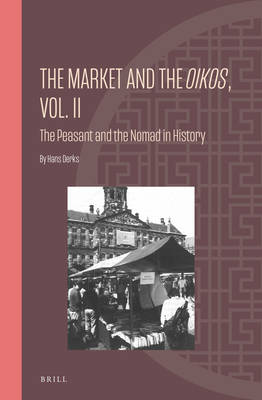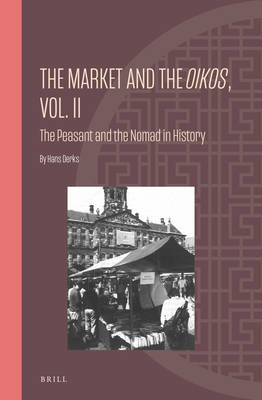
- Afhalen na 1 uur in een winkel met voorraad
- Gratis thuislevering in België vanaf € 30
- Ruim aanbod met 7 miljoen producten
- Afhalen na 1 uur in een winkel met voorraad
- Gratis thuislevering in België vanaf € 30
- Ruim aanbod met 7 miljoen producten
Zoeken
€ 343,45
+ 686 punten
Omschrijving
Both Karl Marx and Max Weber inspired the writing of the two volumes of The Market and the Oikos. Weber coined a market versus oikos contradiction, in which oikos not only means house, household or family, but later also the state, while Marx saw a town versus country antagonism. Both scholars, however, explained insufficiently these most complicated concepts, let alone some mutual relationships. This second volume, The Market and the Oikos, Vol. II: The Peasant and the Nomad in History, continues the analysis of their antagonisms in their mutual relationships by providing the main practical characteristics in different historical, economic and sociological contexts, based on the writing of Max Weber as explained in Vol. I. While the first volume tried to characterize the relationships from economic and historical points of view, this second volume takes a historical/sociological angle. In both volumes, Hans Derks' argument proceeds from early world historical examples to the present context of contemporary China, stressing the highly neglected role of nomads in history.
Specificaties
Betrokkenen
- Auteur(s):
- Uitgeverij:
Inhoud
- Aantal bladzijden:
- 368
- Taal:
- Engels
- Reeks:
- Reeksnummer:
- nr. 27
Eigenschappen
- Productcode (EAN):
- 9789004513754
- Verschijningsdatum:
- 24/03/2022
- Uitvoering:
- Hardcover
- Formaat:
- Genaaid
- Afmetingen:
- 155 mm x 235 mm
- Gewicht:
- 738 g

Alleen bij Standaard Boekhandel
+ 686 punten op je klantenkaart van Standaard Boekhandel
Beoordelingen
We publiceren alleen reviews die voldoen aan de voorwaarden voor reviews. Bekijk onze voorwaarden voor reviews.








